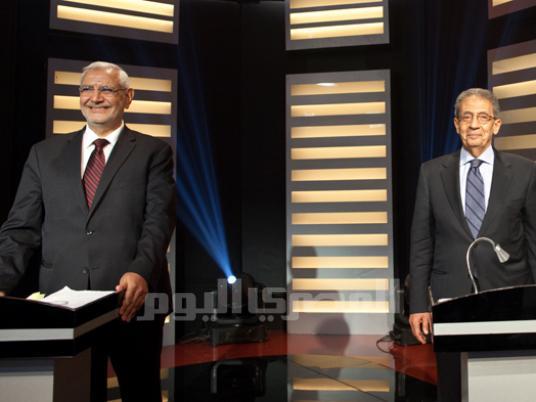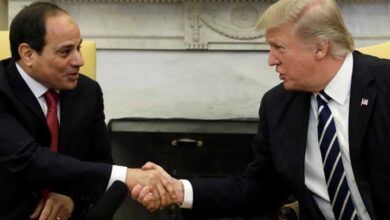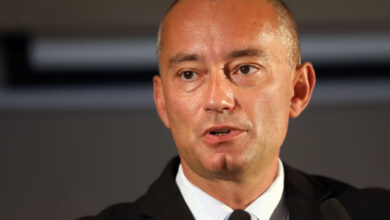
Presidential candidate Amr Moussa sees Israel as a rival that should be fought through diplomatic and political means, as opposed to rival candidate Abdel Moneim Abouel Fotouh, who is hostile to the Jewish state, according to an Israeli expert on Egypt quoted in Israeli newspaper Yedioth Ahronoth.
The report highlighted Moussa’s campaign statements about his foreign policy vis-à-vis the Palestinians. The former foreign minister and former Arab League chief has said he would call for a Palestinian state in accordance with the borders as they were before the end of the 1967 Arab-Israeli War, with East Jerusalem as its capital. He has also called for a nuclear-free Middle East.
In a televised debate with Abouel Fotouh last week, Moussa said he would not cancel Egypt’s peace treaty with Israel, but would review it in terms of its impact on security and general relations with Israel. He avoided calling Israel an “enemy,” as Abouel Fotouh did in the debate.
The newspaper’s report considered Abouel Fotouh’s debate promises as overly ambitious, considering that he said in 10 years Egypt would be among the world’s 20 strongest economies, and that he would make the Egyptian army the most powerful in the region. The report also mentioned Abouel Fotouh’s more realistic promises of improving education and abolishing military trials for civilians.
While attacking Israel during the debate, Abouel Fotouh said the peace treaty should only stand if it serves Egypt’s interests, and called for it to be presented to Parliament for review every five years.
The paper quoted Yoram Meital, the Israeli expert who is a professor at Ben-Gurion University in the Negev and expert on Egyptian affairs, as saying that while Moussa may want to enter into a conflict with Israel, the treaty would still prevail, which would not be the case with Abouel Fotouh.
“Israel knows that Moussa is a challenge it can deal with, but Abouel Fotouh is difficult to talk to,” he said. He added that Moussa is trying to present himself as the right man in the right place based on his diplomatic experience, while the more popular Abouel Fotouh presents himself as the one who can achieve the goals of the revolution.
Meital said although all projections indicate the runoff for Egypt’s presidential election will be held between Moussa and Abouel Fotouh, other candidates, such as former Prime Minister Ahmed Shafiq and Muslim Brotherhood candidate Mohamed Morsy, are also relevant.
“[The candidates] should thank the Presidential Elections Commission for excluding the Brotherhood’s [original] candidate, Khairat al-Shater,” he told the paper.
The expert said Morsy seems not to be looking for trouble with Israel, as he has declared on more than one occasion that he respects the peace treaty. But Morsy would still make the Palestinian issue a top priority as president, Meital said.
Meital said Shafiq expressed a willingness to visit Israel, a step that his friend in Egypt’s air force, former President Hosni Mubarak, never took. However, the Israeli expert opined that Shafiq’s chances are slim because he once said in a television interview: “Unfortunately, the revolution was a success.”
Edited translation from Al-Masry Al-Youm




